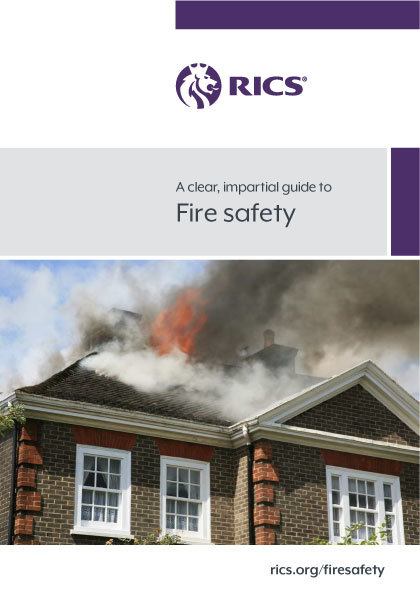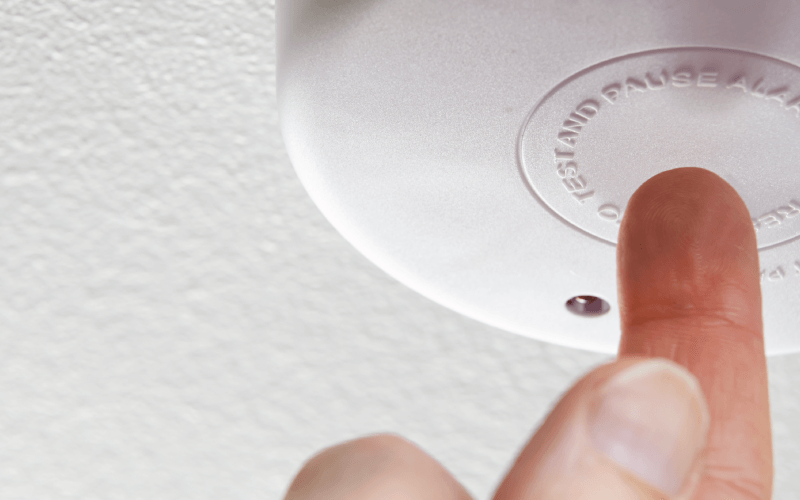Managing fire safety in your home
Most fires in the home can be prevented by taking some basic and common-sense precautions. This information can help you check your home for anything that could cause a fire. You can then take the necessary actions to protect your home and the people who live in it.
Did you know?
- Over half of home fires are caused by cooking accidents
- Every 6 days someone dies in a fire that was started by a cigarette
- Faulty electrical appliances cause around 6,000 house fires every year
Below is some useful safety information. If you have any questions or want any more information, click here to email the Fire Risk Team at Broadacres.
Fire Safety
-
How we help to prevent fire in your home
-
We do all we can to help prevent fires occurring in your home:
- Our homes are fire safety checked before we let them.
- We test electrical wiring and ensure all doors and means of escape are working.
- We fit smoke alarms and heat detectors before you move in.
In blocks of flats:
- All common areas and general building facilities are well maintained.
- We make sure that your building meets fire safety standards and is as safe as possible in the event of a fire.
All fire detection systems and emergency lighting is tested on a monthly basis and make sure all fire escape routes are free from obstructions so you can escape in an emergency.
Fire alarms and lifesaving systems are tested on a regular basis. In individual homes, every time we visit your property to carry out an internal repair we test batteries in smoke alarms.
-
How you can help
-
You have a vital role in keeping yourself, your family and your neighbours safe.
- Escape routes must be clear of obstructions and flammable items so you can escape quickly and easily in an emergency.
- Never put rubbish or unwanted belongings in corridors, under stairs or in any part of the building other than dedicated bin areas.
Contact us if you see anyone leaving rubbish in common areas
If you live in a flat with common areas, you will have a fire door fitted. Keep them closed when not in use and never wedge them open. If your fire door doesn’t close properly, contact us.
-
Smoke alarms
-
We provide smoke alarms in all our homes. If they start to beep for no apparent reason, do not disconnect the alarm as more than likely the battery will need replacing. We recommend that you change the battery immediately if you are able, if not, please contact us.
Do not ignore the beeping or disconnect the alarm.
Your smoke alarm should be tested on a regular basis and you can do this by pressing the test button until it bleeps.
-
What if a fire breaks out?
-
If you live in your own house or the fire is in your own flat
Get everyone out and dial 999 immediately. If possible close doors behind you as this will slow the spread of the fire. Check whether doors are hot and don’t open them if they are. Stay close to the ground and cover your nose and mouth. If you need to break a window and climb out, cover sharp edges and throw out soft things like bedding to cushion your fall.
If you live in a purpose-built block of flats and the fire is in another part of the building
It is usually safer to stay put into your property until the emergency services tell you to evacuate. Your property is designed to give you protection until the fire brigade can rescue you.
However, if your flat has smoke or heat, or you have any other concerns leave the property and make sure everyone is with you. Do not use lifts if there are any but use the stairs. Go to any meeting point that is listed on your fire safety notice or to any other place of safety. When you are out safe call 999 if the fire brigade is not in attendance to ensure they know to attend.
-
Information to help prevent fires
-
Cooking
- When a pot or pan overheats or splatters greases, it can take seconds to cause a fire.
- Stay in the kitchen when cooking, especially if using oil or high temperatures; most kitchen fires occur because people get distracted and leave their cooking unattended.
- Keep combustibles (e.g. oven mitts, dish towels, paper towels) away from heat sources.
- Consider having a fire blanket or suitable fire extinguisher available nearby to use in the event of a fire.
Cigarettes
- Wherever possible make sure the home is off limits for smoking, and especially bedrooms.
- Take care to supervise smokers who may become drowsy (i.e. on medication, drinking) or forget to extinguish their cigarette.
- Use large, deep ashtrays; never place an ashtray on or near anything that will burn; and check furniture for fallen cigarettes/embers
- Do not discard cigarette butts on floors and always use a non-combustible receptacle as an ashtray.
- When discarding ashtrays in to waste bins ensure cigarettes butts are fully extinguished (butt can smoulder for hours before causing combustible waste to burst into flames)
Electrical appliances
Avoid using extension leads or multi-socket adaptors if you can and NEVER plug one extension lead or multi-socket adaptor into another This socket calculator will help you find out if you’re overloading your sockets.
Ensure the following:
- Your electrical appliances don’t have loose or frayed cords/plugs
- Your outlets aren’t overloaded with plugs
- You’re not running electrical wires under rugs or heavy furniture
- You’re not overusing an extension cord or adaptor
Candles
Keep candles in a sturdy holder on a level surface, away from combustible materials and out of the reach of children or pets.
Blow them out before leaving the room.Flammable Liquids
Vapours from flammable liquids – fuels, solvents, cleaning agents, thinners, adhesives, paints, and other raw materials – can ignite or explode if used or stored improperly. The vapours can easily ignite from even just high temperatures or weak ignition sources (one spark of static electricity). Vapours being heavier than air, may travel some distance to an ignition source and then flash back. Don’t store flammable liquids near a heating source but, ideally, outside the home in a cool ventilated area, in approved flammable liquid containers.
-
Following the recent tower block cladding fires, am I safe?
-
The recent tower block fire, that spread because of cladding, has caused concern for all housing providers.
Broadacres do not have any blocks of flats that are above 4 storeys high, but where there has been any concern about the type of cladding on the blocks, we have consulted our local Fire Service to ensure that we have an agreed plan of action in each case.
Once the Government give further advice, as your landlord we will take steps to follow the advice.
More information
If you require more information please click here to visit the North Yorkshire Fire and Rescue Service website.

This Royal Institution of Chartered Surveyors (RICS) guide offers basic advice about fire safety in the home, and has been written specifically with homeowners and residential tenants in mind.
Contact us
If you have any questions or need more information, please contact us. You can find our contact details by following the link below.


